
NAIROBI, July 20 (Xinhua) -- Kenya's flower farms have started investing in solar power projects as they seek to cut the cost of electricity and its reliability from the national grid.
The solar power projects are also meant to enable the farms reduce their use of diesel power generators, the main option for many flower farms in Kenya when there is power blackout.
The latest flower farm to start putting up solar power project is Red Lands Roses, based in Ruiru, 27 km east of the capital Nairobi.
"We are putting a 30 kilowatts project to help us reduce on our cost of electricity and the amount of diesel we use," said the Managing Director of the Red Lands Roses Aldric Spindler.
Flower farmers who spoke to Xinhua on Friday said the need to cut costs at every level of production is because of the increasing costs of growing the flowers most of which are exported to Europe.
They said the costs of fertilizers, labor and airfreight has all gone up necessitating cost reduction measures.
Early this year, another flower farm, Uhuru Flowers, opened a 72 kilowatts solar power plant in a bid to cut its spending on electricity by about 50 percent, from 6,000 U.S. dollars per month six months ago to half the amount.
"The unreliable, low quality electricity created a need for an alternative source of energy," said the flower farm owner Invan Freeman. The farm, which exports exclusively to the Russian market, is located in Nanyuki, 230 km northwest of Nairobi.
The solar power project at Uhuru Flowers is now being used by the Kenya Flower Council as the case study of how other flower farms can use solar technology to cut the cost of their production.
Spindler said he visited the farm as part of the delegation organized by the Kenya Flower Council and realized the concept is beneficial.
Kenya Flower Council said it is seeing an opportunity of making Kenya flowers competitive in the world market when more farms invest in solar power projects.
It will mean Kenya flowers can be less priced because of less production costs, and therefore maintain a competitive in pricing.
Kenya is the leading exporter of rose cut flowers to the European Union, according to the Kenya Flower Council. It has a market share of about 38 percent but it is facing competition from Ethiopia and Latin American countries.
The Kenya Economic Survey 2013 reveals that the cut flower sector earned the country 765 million dollars in 2012, up from 694 million dollars in 2011.
Kenya Flower Council data shows that about 65 percent of exported flowers are sold through Dutch auctions for re-export, with Britain market buying 25 percent of the produce, the rest going to Japan, US, Russia, France and Germany.
The council however notes there is an increasing trend where flower farms are exporting directly to their distributors.
The growing interest in investing in solar power projects by flower farms has also brought in new vendors of medium to large scale solar power project developers keen to tap into the emerging market.
Among them is the East African Solar, the company that jointly with partners developed the 72 kilowatts Uhuru Flowers project.
East Africa Solar Managing Director Guy Lawrence said the projects are able to give in return on investment in about five years. He said the perception in East Africa that solar power plants can only work in areas with longer sunshine periods like northern Kenya is holding back investments. "Solar power plants are working in Scotland with limited sunshine, therefore there is no problem having solar in Nairobi, Kampala or Arusha with our occasional grey skies," said Lawrence.
East African Solar is focusing on developing large scale commercial solar parks in area's of the region that require extra power for businesses or the grid, both of which help grid stabilization.
Another solar technology vendor is a French company AVENTUS which seeks to facilitate flower farms reduce their electricity costs through use of a mix of solar, wind and diesel generators
The technologies the company currently offers include wind turbines with output of 275 kilowatts and one megawatt.
"The turbines are specifically designed to be the most easy to install in any ground and tough terrains without requiring heavy equipment. They have worked in areas with even harsh conditions around the world," said the managing director of AVENTUS Philippe Figuiere.
AVENTUS has also introduced a concept of intelligent hybrid solutions combining solar-diesel or wind-diesel managed by high- tech software allowing the best use of renewable energy.
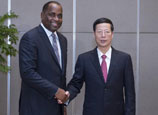



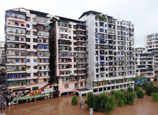
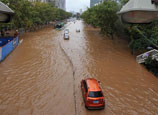


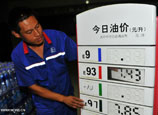
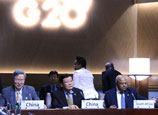






 Floodwater gushes from sluices of Gezhou Dam, China's Hubei
Floodwater gushes from sluices of Gezhou Dam, China's Hubei


![]()
